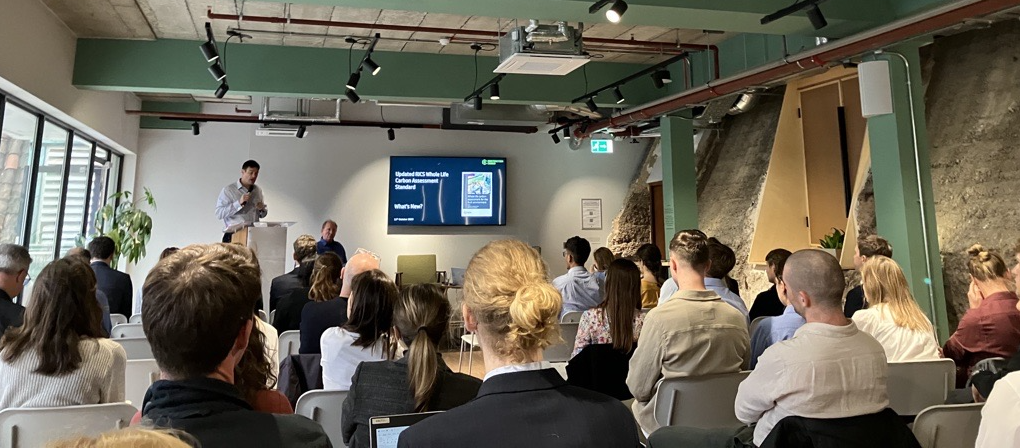
RICS has recently launched the updated Whole Life Carbon assessment standard and members of the Qflow team attended the launch event, hosted by Construction Carbon.
This new assessment standard aims to provide a blueprint for calculating the carbon footprint of a new building or infrastructure asset. The second iteration of this assessment now considers the demolition of any previously existing buildings, the specific materials and products used during construction, the carbon emitted during the use of the building and the end of the building or asset’s life when calculating the carbon impact. Creating a whole-life carbon standard against which the entire construction industry can report key carbon figures will enable the industry to deliver low and net carbon-zero projects.
There are many benefits to adopting a whole-life carbon approach when conducting carbon reporting one example is better tenant retention. We are seeing more and more tenants becoming conscious of the spaces they occupy and choosing to lease buildings with minimal impact on our environment. This new standard will also ensure the construction industry plays its role as the UK aims to become a net carbon-zero country by 2050.
Qflow data can support the data capture during the construction phase, by providing project teams with an accurate list of all materials and their quantities as they arrive on site and also a clear picture of all waste produced during demolition, construction and refurbishment phases. Specifically, Qflow can support by providing data for the A1-A5 stages of the assessment for construction, refurbishment, fit-out and demolition projects. Qflow can provide clear data on the type and quantity of materials delivered to the site, to facilitate accurate carbon reporting.
Traditionally capturing this data during the construction phase has been manual and time-intensive, Qflow aims to make capturing this data as simple as possible. Giving site teams and consultants access to reliable project data in real time.
The updated standard also addresses uncertainty in WLCA reporting by introducing the mandatory requirement to calculate and report a contingency allowance, which will vary depending upon the stage at which the WLCA is produced, and the quality of the data being used. Using data captured during the construction phase by Qflow when calculating whole-life carbon reports can help to reduce these factors and provide more accurate data.
Qflow helps to provide the right data at the right time, making calculating the whole-life carbon impact of a project a simpler and more streamlined process.
If you’d like to know more about Qflow and how we can help capture real-time materials and waste data, contact us here. Qflow is also part of the RICS programme, you can find out more here.
Click here for further information about the new RICS standard.

